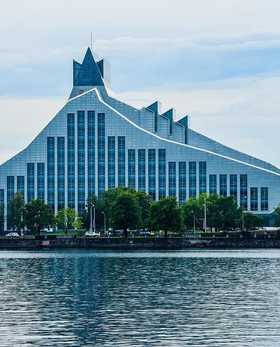Solo nomad: Estimated monthly costs are $547 (excluding rent), and $1,694 including rent.
Family of 3: Estimated monthly costs are $1,082 (excluding rent), and $3,882 including rent.
Meal at Budget Restaurant
$1.37 ₦1,865
$3.79 ₦5,173
Three-Course Dinner for Two, Mid-Range
$25.48 ₦34.7K
$76.4 ₦104.1K
Fast Food Meal (McDonalds, etc)
$4.36 ₦5,951
$5.81 ₦7,921
Coke/Pepsi/Fanta/Sprite (0.33 liter bottle)
Water (0.33 liter bottle)
Local Beer (0.5 liter draught)
Imported Beer (0.33 liter bottle)
$0.89 ₦1,211
$2.96 ₦4,038
Utilities for 2 People in 2-bedroom Apartment (Heating, Electricity, Gas, Water, Garbage) (85m2)
$18.96 ₦25.9K
$41.93 ₦57.2K
SIM Card Monthly Plan (Calls and 10GB+ Data)
$11.01 ₦15.0K
$11.01 ₦15.0K
Internet (50+ Mbps, Unlimited Data)
$20.05 ₦27.3K
$56.8 ₦77.4K
Jeans (Levis 501 Or Similar)
$16.90 ₦23.0K
$42.66 ₦58.2K
Summer Dress (H&M, Zara, etc)
$10.09 ₦13.8K
$36.11 ₦49.2K
Sport Shoes (Adidas, Nike)
$34.14 ₦46.6K
$123 ₦167.9K
Men's Leather Business Shoes
$54.1 ₦73.8K
$107 ₦145.6K
1-bedroom Apartment, City Center (Monthly)
$1,608 ₦2.2M
$4,359 ₦5.9M
1-bedroom Apartment, Outside City Center (Monthly)
3-bedroom Apartment, City Center (Monthly)
$3,517 ₦4.8M
$11.5K ₦15.7M
3-bedroom Apartment, Outside City Center (Monthly)
$1,180 ₦1.6M
$7,040 ₦9.6M
Buy Apartment in City Center (m2)
-
Buy Apartment Outside City Center (m2)
-








